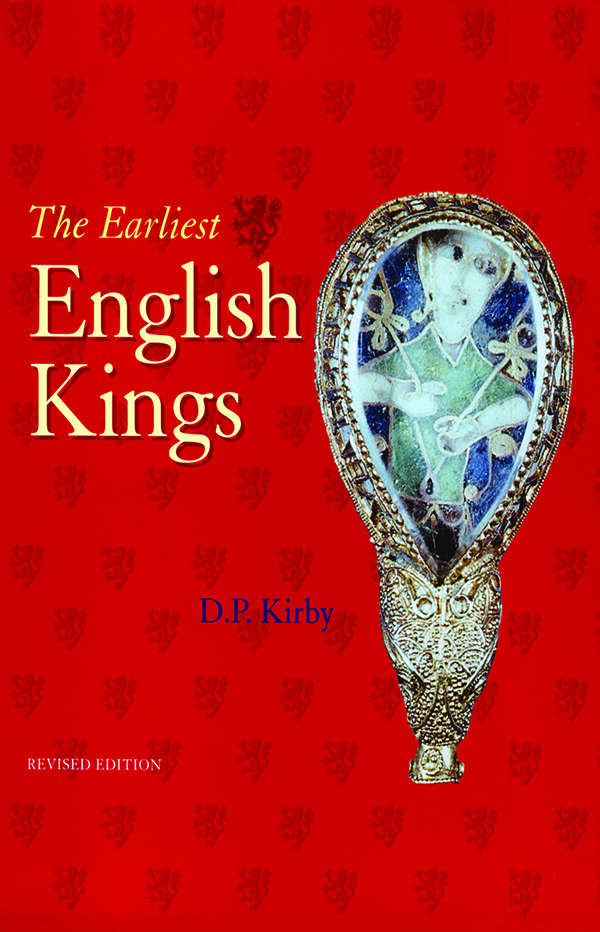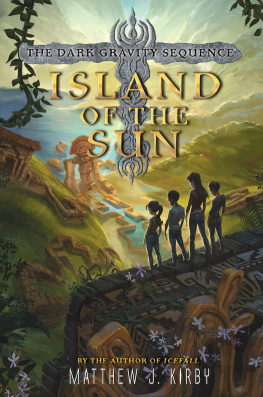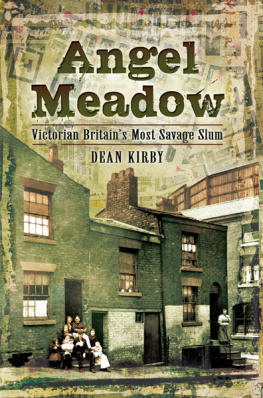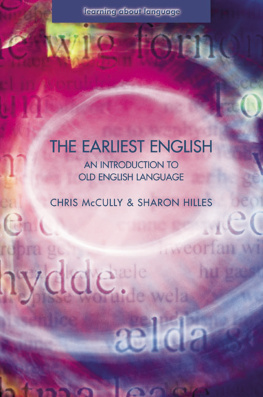D. P. Kirby - The Earliest English Kings
Here you can read online D. P. Kirby - The Earliest English Kings full text of the book (entire story) in english for free. Download pdf and epub, get meaning, cover and reviews about this ebook. year: 2000, publisher: Routledge, genre: Art. Description of the work, (preface) as well as reviews are available. Best literature library LitArk.com created for fans of good reading and offers a wide selection of genres:
Romance novel
Science fiction
Adventure
Detective
Science
History
Home and family
Prose
Art
Politics
Computer
Non-fiction
Religion
Business
Children
Humor
Choose a favorite category and find really read worthwhile books. Enjoy immersion in the world of imagination, feel the emotions of the characters or learn something new for yourself, make an fascinating discovery.

The Earliest English Kings: summary, description and annotation
We offer to read an annotation, description, summary or preface (depends on what the author of the book "The Earliest English Kings" wrote himself). If you haven't found the necessary information about the book — write in the comments, we will try to find it.
The Earliest English Kings — read online for free the complete book (whole text) full work
Below is the text of the book, divided by pages. System saving the place of the last page read, allows you to conveniently read the book "The Earliest English Kings" online for free, without having to search again every time where you left off. Put a bookmark, and you can go to the page where you finished reading at any time.
Font size:
Interval:
Bookmark:

Annales Cambriae, ed. E. Phillimore, The Annales Cambriae and the old Welsh genealogies from Harleian MS 3859, Y Cymmrodor, vol. 9 (1888), pp. 14183, and Annales Cambriae, ed. J. W. ab Ithel (Rolls series: London, 1860), the Harleian annals translated by J. Morris, Nennius (Chichester, 1980)
ASCAnglo-Saxon Chronicle, ed. B. Thorpe, 2 vols (Rolls series: London, 1861), currently being re-edited by D. Dumville and S. Keynes, The Anglo-Saxon Chronicle: A Collaborative Edition (Cambridge, 1983), and translated The Anglo-Saxon Chronicle, ed. D. Whitelock, D. C. Douglas and S. I. Tucker (London, 1961)
ATAnnals of Tigernach, ed. W. Stokes, Revue Celtique, vol. 17 (1896)
AUAnnals of Ulster (to A.D. 1131), Part I, ed. S. Mac Airt and G. Mac Niocaill (Dublin Institute of Advanced Studies, 1983)
BARBritish Archaeological Reports
ByTBrut y Tywysogion or Chronicle of the Princes, ed. and trans. T. Jones, 4 vols (Board of Celtic Studies, University of Wales History and Law Series, nos VI, XI, XVI, XXV: Cardiff, 194171)
CAK. Gabrowski and D. Dumville, Chronicles and Annals of Mediaeval Ireland and Wales (Woodbridge, Suffolk, 1984)
CBACouncil for British Archaeology
CSCartularium Saxonicum, ed. W. de Gray Birch, 3 vols (London, 188593)
EHDEnglish Historical Documents, Vol. I, c. 5501042, ed. D. Whitelock (2nd edn, 1979)
HBHistoria Brittonum, ed. T. Mommsen, Chronica Minora, Vol. III, MGH Auctores Antiq., Vol. XIII (Berlin, 1894), currently being re-edited by D. N. Dumville, The Historia Brittonum (Cambridge, 1985), and translated J. Morris, Nennius (London and Chichester, 1980)
HEHistoria Ecclesiastica, ed. C. Plummer, Venerabilis Baedae Opera Historica, 2 vols (Oxford, 1892, 1896) and ed. and trans. B. Colgrave and R. A. B. Mynors, Bedes Ecclesiastical History of the English People (Oxford, 1969)
MGHMonumenta Germaniae Historica
SP. H. Sawyer, Anglo-Saxon Charters: An Annotated List and Bibliography (Royal Historical Society Guides and Handbooks, no. 8: London, 1968)
First published 1991 by Unwin Hyman Ltd
Reprinted 1992 by Routledge
Revised edition published 2000 by Routledge
11 New Fetter Lane, London EC4P 4EE
Simultaneously published in the USA and Canada
by Routledge
29 West 35th Street, New York, NY 10001
Routledge is an imprint of the Taylor & Francis Group
1991, 2000 D. P. Kirby
Typeset in Garamond by Graphicraft Limited, Hong Kong
All rights reserved. No part of this book may be reprinted or reproduced or utilised in any form or by any electronic, mechanical, or other means, now known or hereafter invented, including photocopying and recording, or in any information storage or retrieval system, without permission in writing from the publishers.
British Library Cataloguing in Publication Data
A catalogue record for this book is available from the British Library
Library of Congress Cataloging in Publication Data
A catalog record for this book is available from the Library of Congress
ISBN: 041524210X
Dedicated to the memory Martin Kirby
I hope that this book on the history of the Anglo-Saxon heptarchy, now entering upon a second edition, has captured something of the vitality of recent Anglo-Saxon historical scholarship which has been for many years one of the striking features of academic involvement with the Middle Ages in Britain. Intense interest in all aspects of the history of England before the Norman conquest has raised the level of our understanding of the development of English society in the centuries after the collapse of the Roman Empire in the west. At the same time the study of the Celtic regions of the British Isles has refined the details of Anglo-Celtic interaction and led to a new emphasis on the importance of the British Isles as a whole if we are to do justice to any single region. Moreover, insular studies are even less now than they ever were narrowly focussed on domestic matters. Relationships in the early Middle Ages between Frankish Europe and the British Isles have long been seen as exercising a profound influence on insular development both economically and culturally but the focus on the European dimension has become if anything more attuned in recent years to continental ecclesiastical and political nuances and the pervasive nature of Frankish power on the formation and duration of evolving political and military structures among the Anglo-Saxons.
In The Earliest English Kings, first published in 1991, reprinted in 1992 and 1994 and now in a second, revised edition, I have sought to reflect these currents in Anglo-Saxon studies and to develop in the context they provide my own views on the detail of the history of Anglo-Saxon England between the end of Roman Britain in the fifth century AD and the Scandinavian invasions in the ninth. What I have been concerned to describe are the fluctuating fortunes of the ruling dynasties of the kingdoms of the Anglo-Saxon heptarchy (as the seven dominant kingdoms of the men of Kent, the East, South and West Saxons, the East Angles, the Mercians and Northumbrians have become known) and the ways in which, some more successfully than others, they consolidated their kingdoms and sought to dominate, exploit and take tribute from their neighbours. Small principalities were absorbed by the more powerful kingdoms and for a time a particularly strong ruler might achieve an overkingship or overlordship of quite extensive territory before his creation passed into eclipse. What dictated these power-shifts remains a matter of central relevance to our understanding of the nature of political and military power in early England. The Anglo-Saxon kingdoms display a seemingly unlimited capacity to redefine their political and military relationships in a changing kaleidoscope of transitory hegemonies across the seventh and eighth centuries until in the ninth century the Vikings shattered the existing political situation and displaced these ruling dynasties over much of England.
The evidence for so early a period, of course, as stressed in my original Preface, is incomplete and often of limited value. Letters and charters have a unique contemporary value but written accounts, whether in annals, histories or saints Lives, were generally produced some considerable time after the events they record. The oral testimony they were based upon was not necessarily reliable nor was verification possible. There are indications that the more circumstantial an account the more suspect it is. Only a tiny fraction of all that took place has found a mention in the surviving record. But this does not mean that the attempt to write early history should be abandoned. The historian has to take care not to go beyond what may be legitimately inferred in the light of the evidence which does survive but at the same time has to consider possibilities which must have been very real at the time even if the surviving evidence does not shed direct light on them. Endeavouring to make sense of incomplete and imperfect material is an essential part of the historical process.
Anglo-Saxon historical material is continually generating differences of opinion which afford new insights into these distant centuries and make a highly significant contribution to the historical debate. I have sought, therefore, to include in the footnotes references to as many relevant additional publications as possible. The problematic nature of so much of the evidence has not prevented the continued enthusiastic study in this period of specific kingdoms, individual reigns, even single battles. The quest to understand what motivated Anglo-Saxon politics and the actions of Anglo-Saxon kings, not least during the process of Christianization in the seventh century, with decisions taken not only under papal pressure but also in response to considerations of
Next pageFont size:
Interval:
Bookmark:
Similar books «The Earliest English Kings»
Look at similar books to The Earliest English Kings. We have selected literature similar in name and meaning in the hope of providing readers with more options to find new, interesting, not yet read works.
Discussion, reviews of the book The Earliest English Kings and just readers' own opinions. Leave your comments, write what you think about the work, its meaning or the main characters. Specify what exactly you liked and what you didn't like, and why you think so.











